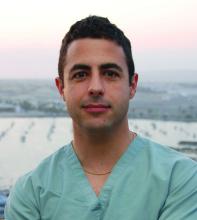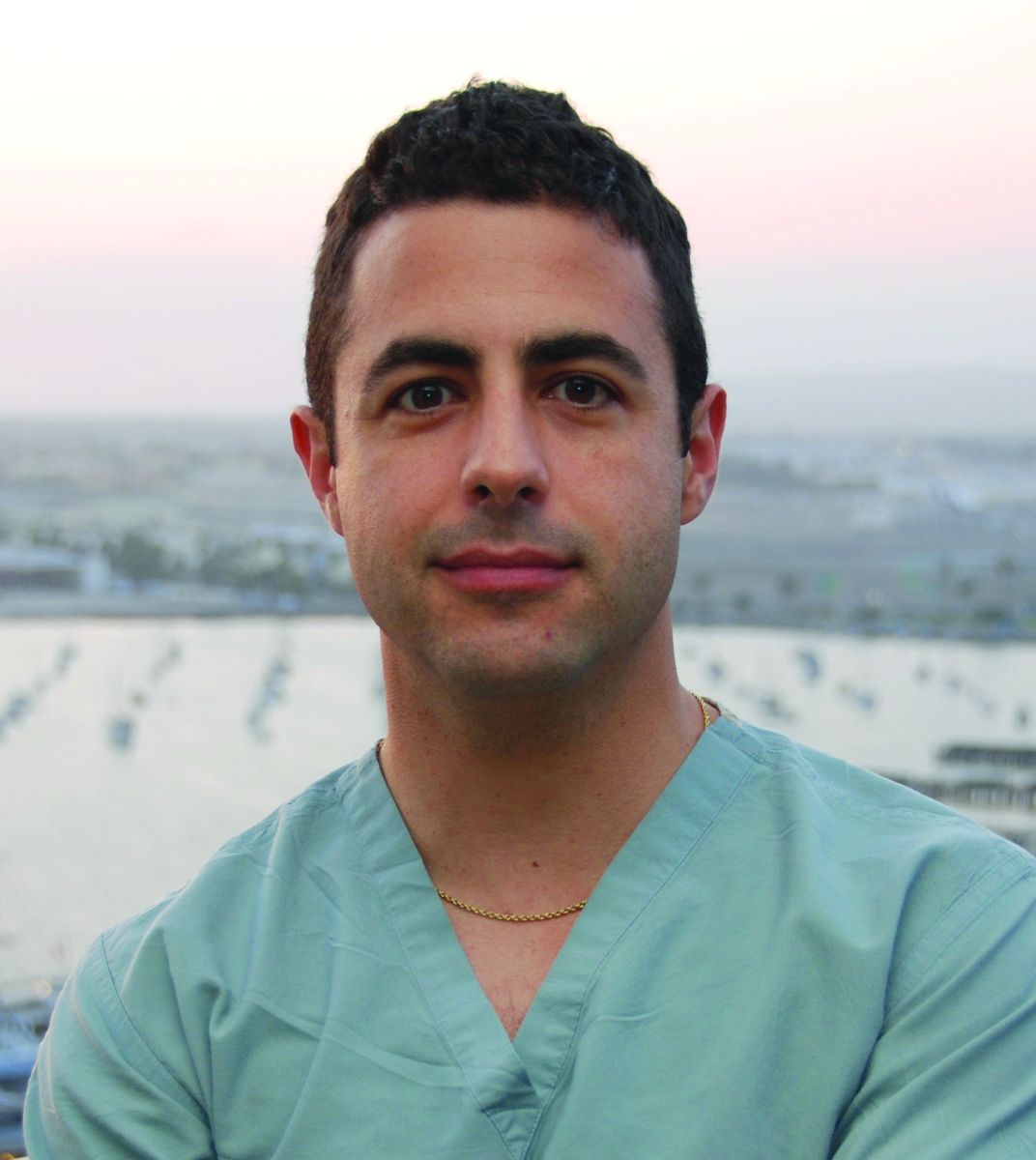User login
Ten years ago, I was flying back from my last job interview – I did nearly 20 – and my wife and I were stuck: Should I take a lucrative private practice gig, an academic position, or join a group? We listed the pros and cons on several condensation-soaked Southwest Air napkins and agreed to make a decision before landing. (Fortunately, it was a cross country, BWI to SAN, flight).
I don’t know if I made the right decision. I’m sure I’d have enjoyed either a cosmetic practice or walking the halls with medical students in tow. I chose to join a medical group at Kaiser Permanente, and I’ve loved it. Working here has helped me become a better dermatologist, teammate, friend, and husband. It has also allowed me to embrace digital medicine a bit earlier and with less difficulty than most. You wouldn’t be reading my “Digital Doctor” column if I hadn’t.
Digital made medicine more accessible than ever. It also made medicine more of a commodity than ever. It turned us into the highest paid data entry clerks in the world. It changed the sacrosanct doctor-patient relationship. It has also presented us with the greatest opportunity in a thousand years. An opportunity to create a new medicine, one that is patient-centric, smart, affordable, efficient, and human. I started this column to explore the digital devices we doctors have and to find ways they might improve the care we give.
I’ve been in practice for 10 years, and I’m now the chief of service for a large dermatology group, as well as physician director for Healthcare Transformation for Kaiser Permanente, San Diego. My job is to help our physicians perform at their best both at work and in life. Through research, interviews, and my own practice, I’ve learned a lot and would like to share it with you.
Starting in September, I’ll broaden the scope of this column. No longer will it be just digital. Rather, it will be about you and how you can be the best you can be. We’ll explore tools, techniques, diet, exercise, and Jedi mind tricks to make you the fastest, smartest, happiest, healthiest, funniest (results may vary) doctor you can be. It’s time to take this column, and you, to the next level – the Optimized Doctor. I can hardly wait.
Dr. Benabio is director of Healthcare Transformation and chief of dermatology at Kaiser Permanente, San Diego. The opinions expressed in this column are his own and do not represent those of Kaiser Permanente. Dr. Benabio is @Dermdoc on Twitter. Write to him at [email protected].
Ten years ago, I was flying back from my last job interview – I did nearly 20 – and my wife and I were stuck: Should I take a lucrative private practice gig, an academic position, or join a group? We listed the pros and cons on several condensation-soaked Southwest Air napkins and agreed to make a decision before landing. (Fortunately, it was a cross country, BWI to SAN, flight).
I don’t know if I made the right decision. I’m sure I’d have enjoyed either a cosmetic practice or walking the halls with medical students in tow. I chose to join a medical group at Kaiser Permanente, and I’ve loved it. Working here has helped me become a better dermatologist, teammate, friend, and husband. It has also allowed me to embrace digital medicine a bit earlier and with less difficulty than most. You wouldn’t be reading my “Digital Doctor” column if I hadn’t.
Digital made medicine more accessible than ever. It also made medicine more of a commodity than ever. It turned us into the highest paid data entry clerks in the world. It changed the sacrosanct doctor-patient relationship. It has also presented us with the greatest opportunity in a thousand years. An opportunity to create a new medicine, one that is patient-centric, smart, affordable, efficient, and human. I started this column to explore the digital devices we doctors have and to find ways they might improve the care we give.
I’ve been in practice for 10 years, and I’m now the chief of service for a large dermatology group, as well as physician director for Healthcare Transformation for Kaiser Permanente, San Diego. My job is to help our physicians perform at their best both at work and in life. Through research, interviews, and my own practice, I’ve learned a lot and would like to share it with you.
Starting in September, I’ll broaden the scope of this column. No longer will it be just digital. Rather, it will be about you and how you can be the best you can be. We’ll explore tools, techniques, diet, exercise, and Jedi mind tricks to make you the fastest, smartest, happiest, healthiest, funniest (results may vary) doctor you can be. It’s time to take this column, and you, to the next level – the Optimized Doctor. I can hardly wait.
Dr. Benabio is director of Healthcare Transformation and chief of dermatology at Kaiser Permanente, San Diego. The opinions expressed in this column are his own and do not represent those of Kaiser Permanente. Dr. Benabio is @Dermdoc on Twitter. Write to him at [email protected].
Ten years ago, I was flying back from my last job interview – I did nearly 20 – and my wife and I were stuck: Should I take a lucrative private practice gig, an academic position, or join a group? We listed the pros and cons on several condensation-soaked Southwest Air napkins and agreed to make a decision before landing. (Fortunately, it was a cross country, BWI to SAN, flight).
I don’t know if I made the right decision. I’m sure I’d have enjoyed either a cosmetic practice or walking the halls with medical students in tow. I chose to join a medical group at Kaiser Permanente, and I’ve loved it. Working here has helped me become a better dermatologist, teammate, friend, and husband. It has also allowed me to embrace digital medicine a bit earlier and with less difficulty than most. You wouldn’t be reading my “Digital Doctor” column if I hadn’t.
Digital made medicine more accessible than ever. It also made medicine more of a commodity than ever. It turned us into the highest paid data entry clerks in the world. It changed the sacrosanct doctor-patient relationship. It has also presented us with the greatest opportunity in a thousand years. An opportunity to create a new medicine, one that is patient-centric, smart, affordable, efficient, and human. I started this column to explore the digital devices we doctors have and to find ways they might improve the care we give.
I’ve been in practice for 10 years, and I’m now the chief of service for a large dermatology group, as well as physician director for Healthcare Transformation for Kaiser Permanente, San Diego. My job is to help our physicians perform at their best both at work and in life. Through research, interviews, and my own practice, I’ve learned a lot and would like to share it with you.
Starting in September, I’ll broaden the scope of this column. No longer will it be just digital. Rather, it will be about you and how you can be the best you can be. We’ll explore tools, techniques, diet, exercise, and Jedi mind tricks to make you the fastest, smartest, happiest, healthiest, funniest (results may vary) doctor you can be. It’s time to take this column, and you, to the next level – the Optimized Doctor. I can hardly wait.
Dr. Benabio is director of Healthcare Transformation and chief of dermatology at Kaiser Permanente, San Diego. The opinions expressed in this column are his own and do not represent those of Kaiser Permanente. Dr. Benabio is @Dermdoc on Twitter. Write to him at [email protected].

